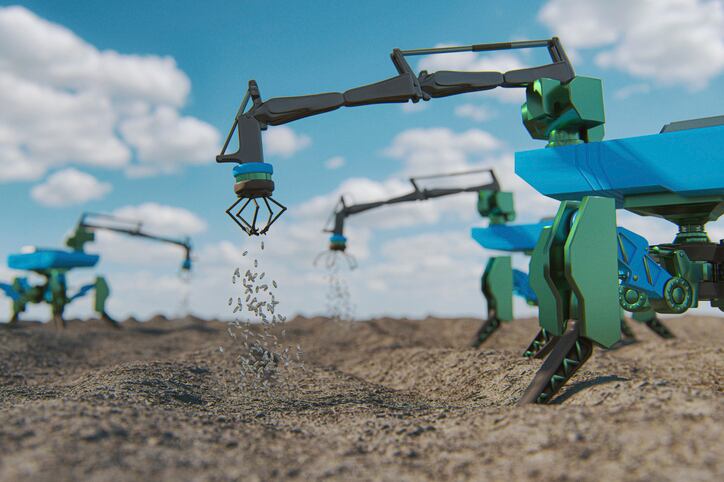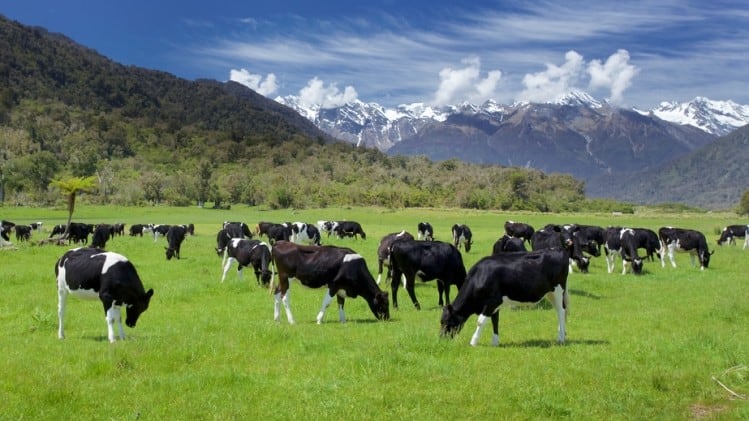The company’s agtech funding initiatives are driven by its commitment to addressing the evolving challenges faced by the agriculture industry and its belief that technological advancements are pivotal for the future of agriculture.
By identifying and supporting start-ups with ground-breaking technologies that align with its vision for sustainable and efficient farming practices, it aims to contribute to the development of a more resilient, productive and environmentally friendly agricultural sector.
BASF Venture Capital’s investment focus spans key areas such as decarbonisation, circular economy, agtech, new materials, digitisation and new, disruptive business models. In terms of technology, it looks for innovations that span the entire agricultural value chain, with the goal of fostering a holistic approach to addressing the agriculture industry’s challenges. It is particularly interested in solutions to enhance crop protection, improve resource efficiency and promote overall sustainability in agriculture.
At the same time, flexibility is a key feature of the company’s investment strategy. Operating within the BASF Group’s balance sheet allows BASF Venture Capital to act with agility and a long-term perspective. The unlimited term of its investments further enhances this, providing it with the freedom to adapt to evolving market conditions.
Global goals
The company has global plans for its venture capital (VC) investments; since its inception 2001, its track record has covered the entire spectrum of VC investments on an international level. Currently, its reach extends to 10 locations worldwide, including Copenhagen, Toronto, Boston, Shanghai, São Paulo, Mumbai and Tel Aviv. As such, it is strategically positioned to tap into emerging trends and technologies across various regions.
Furthermore, an evergreen fund of €250 million provides BASF Venture Capital with the financial muscle to invest in ground-breaking ventures. So far, has been involved in both initial and follow-on investments, as well as successful exits through merger and acquisition (M&A) transactions and initial public offerings (IPOs). This breadth of experience positions it as a seasoned player in the venture capital landscape, capable of navigating the complexities of the global innovation ecosystem.
The company has been quite active in the agtech sector across various regions, especially Europe, North and South America, and APAC. In both Europe and North and South America, diverse agricultural landscapes make it crucial for it to invest in solutions tailored to local needs.
For instance, it supports LanzaTech, a carbon recycling company that has a presence in the US, China and India. LanzaTech's collaborations and commitment from Brookfield align with BASF Venture Capital's interest in sustainable practices, and the partnership could contribute to BASF's broader sustainability goals.
Europe
In Europe, BASF Venture Capital’s focus has been supporting innovative technologies that enhance environmental consciousness, as well as agricultural productivity and sustainability.
One notable example is Climentum Capital, which invests in European start-ups that develop technologies with significant CO2 savings potential. The fund, which has hubs in Berlin, Copenhagen and Stockholm, focuses on late seed and Series A investments in six sectors, including next-generation renewables, food and agriculture, and industry and manufacturing.
There is also the France-based Lactips SA, which has pioneered protein-based natural materials since 2014 and attracted BASF investment in 2018. The company develops and manufactures a material that is 100% bio-sourced, water-soluble and fully biodegradable in all environments and can also be processed like any plastic. Lactips has commercialised its technology in agriculture (among other markets), aided by BASF Venture Capital in its product development.

North and South America
In North and South America, BASF Venture Capital has shown a keen interest in start-ups and technologies that contribute to the efficiency, resilience and environmental friendliness of farming practices.
One example is Groundwork BioAg, a bio-agriculture firm with a US presence. The investment underscores BASF Venture Capital’s support for mycorrhizal inoculants for agriculture, further reinforcing its interest in sustainable and eco-friendly solutions.
Other BASF Venture Capital investments in North America include intelligent agriculture technology enterprise EAVision (founded in Silicon Valley in 2015) and Vancouver-based pH7 Technologies, whose proprietary closed-loop, electro-chemical process has nearly zero environmental impact in extracting and recycling key minerals.
In South America, the company has been particularly active in Brazil, investing in TraiveTM and SP Ventures last year. The former is a financial platform for agricultural credit digitisation that also has a US presence and aligns with BASF Venture Capital’s interest in supporting the agricultural ecosystem through technology and innovation.
The latter, SP Ventures, is a Brazilian early-stage agtech fund that shares much in common with the VC company’s global investment strategy and furthers its focus on software-based agricultural solutions, thereby complementing its interest in technology-driven agriculture.
APAC
In APAC, BASF Venture Capital has strategically invested in agtech companies in China, India and New Zealand that align with the unique characteristics of agriculture in these countries.
The company has made significant headway with China-based funds having in the China Environment Fund (CEF) IV, the latest in a series of USD funds established in 2002. The fund invests in early growth stage sustainable technology companies, both in China and globally. It has invested in over 20 portfolio companies and its fund management team has been closely engaging BASF’s global and China team in technology scouting and co-investment opportunities.
In India, as part of a Series B round, BASF Venture Capital recently invested in Sea6 Energy together with Aqua-Spark, a Dutch investment fund focused on the global aquaculture industry. Founded in 2010, the Bangalore-based Sea6 Energy is considered a pioneer in tropical marine agriculture and has developed an integrated approach to cultivating and utilising red seaweed, a promising sustainable raw material.
In New Zealand, BASF Venture Capital has invested in WayBeyond, a B2B business whose expertise in data, AI and plant science is embodied in its future-focused farming solutions. These include FarmRoad (a farm management platform that features yield prediction and crop registration tools) and Folium (a climate monitoring system that uses readings from a network of wireless sensors to deliver detailed data across large growing areas).
Beyond financing
Beyond financial investment, BASF Venture Capital provides strategic guidance and industry expertise to help start-ups navigate the complexities of the agtech landscape. This hands-on approach can include mentorship, access to BASF's extensive network and collaboration opportunities to foster the growth of innovative solutions. By collaborating with external partners, especially start-ups, the company can enhance and complement its own R&D initiatives.
Its typical investment state ranges from seed to series B, indicating a willingness to engage with ventures at various stages of development. The company is also actively involved in advising on strategic management decisions. This strategy aligns with its goal of actively shaping the growth of portfolio companies. The leveraging of internal and external resources within the BASF Group further underscores its commitment to propelling these ventures forward.
Looking ahead, BASF Venture Capital is likely to continue seeking investments in cutting-edge technologies that have the potential to transform agriculture. This may include advancements in AI, bio-technology and sustainable farming practices. The emphasis will be on staying at the forefront of agtech innovation and contributing to the long-term sustainability of global agriculture.
To this end, BASF Venture Capital will likely seek start-ups that exhibit strong potential for scalability and long-term impact. This could involve technologies that not only align with current industry trends but also demonstrate adaptability to future challenges in agriculture. This, along with the company’s activities in the agtech space so far, demonstrate a strategic and diversified approach that falls in line with BASF's overarching goals in sustainability, technology and innovation.




